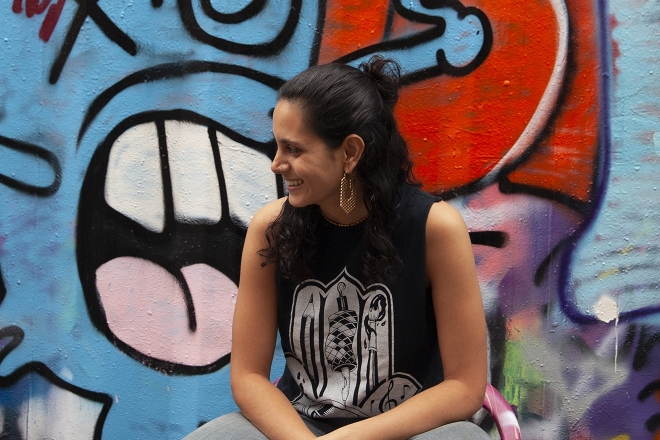Mixmag Asia Radio: Goa-based Pia Collada drops an afro & reggae set
Living in Goa lets the half British, half Indian artist be experimental

Pia Collada is a half British, half Indian artist who’s seen her musical prowess grow from having lived around the world; she grew up between India, USA and Tanzania, and is currently settled in Goa where a multicultural atmosphere sings to her beat.
Her beat is a unique one too — Pia takes a funkier approach to music that sees her infuse hip hop, reggae, dancehall, and afro-influenced genres from house to trap. Need a dose of invigorating female energy? Look no further than Goa-based Pia Collada.
Tune in to Mixmag Asia Radio with Pia Collada while reading her interview below.
Where are you based and how did you get there?
I’m based in Goa and moved here two years ago from Delhi. I grew up between India, U.S.A and Tanzania so Goa’s mix of Indian and international community makes me feel at home.
What’s your favourite thing about the music scene there?
Goa feels like it’s in a really special place right now because even though it’s got a strong musical history, a lot of young, creative people moved here during the pandemic so there’s a bunch of experimental events and collaborations happening. Goa also attracts musicians from all over the world so you get a really rich and diverse scene. You can listen to good music every night of the week if you know where to look. It’s also recently becoming a hub for underground music with artists like Breaka, Manara and Madam X coming in, which is exciting.
In five words, what do your DJ sets sound like?
An island where palm trees grow bass speakers instead of coconuts
And in three words, how would you describe yourself?
Turtle on a surf-skate
What recent trends in music have you been paying attention to? Have you caught onto them?
I’ve been loving the growing popularity of afro-inspired music in India. It used to feel like only a handful of us were listening to or playing such music here, but recently we’ve started hearing afrobeat playing even at tiny fish-thali restaurants in Goa. It’s great.
On a personal level I’ve been following the development of genres like amapiano and gqom because they feel like a great progression from classic afro-beat into electronic music. It feels like the fun of afro drums with some of the darkness and heavy-weight of bass music, which opens up crazy possibilities to cruise between genres in one set. I’ve really enjoyed finding my sound in this in-between space.
Are there any producers and DJs in Asia that have recently caught your attention?
One of my favourite Indian producers is Stain, who finds a great way of blending bass music with melodic, eclectic sounds. You’ll hear some of his newer songs in this set, along with tracks by other Indian producers like Prismer and Flux Vortex.
I also really like Indian DJ/producer Kiss Nuka because of the sound she plays; it's creative across multiple fields and is unapologetically herself.
From outside of India - a big shoutout to my childhood friend from Tanzania, Lyla, who recently did Boiler Room Pakistan, played a banger set and threw in some of her own roots. It also hits home because we’d love to throw events together but know how hard it is between India and Pakistan right now. Even so, the idea and the woman are inspiring.
From pre to post pandemic, what has changed & what hasn’t changed about your life in the music world?
Everything changed. I moved to Goa during the pandemic to find a healthier, slower pace of life. I get to spend my mornings surfing and skateboarding instead of being stuck in traffic. Living in Delhi I felt more pressured to cater to a crowd when playing my sets, because even though there’s a strong underground scene in the city, I didn't feel as comfortable experimenting as I do in Goa. I have a community of musician friends here who inspire me across genres like afro-folk, jazz, funk and reggae, so there’s always something new and exciting to learn.
Tell us about the inspiration behind this mix - what drove your thoughts and emotions, and how did you curate your selection?
I love a progression from dark beats to funky dance grooves, keeping a universal language of bass throughout. I’m inspired by genre-bending producers like Mungk, Violet and Tribal Brothers, who can find conversations between sounds from different cultures.
I also recently went back to Tanzania after 10 years for my high-school reunion, which was an amazing trip and I heard great music everywhere. Every rickshaw we rode in was playing the newest afrobeat and amapiano from their tiny speakers. I wanted to find a way to bring those feelings back with me into the set while still keeping it bass heavy.
What equipment did you record this mix on?
I used my Pioneer DDJ-400.
Where can we hear you playing next?
I was playing in Goa and enjoyed being back home throughout September. From October onwards there’s some exciting things coming up both in and out of the country. It’s been a great year and only getting better!


